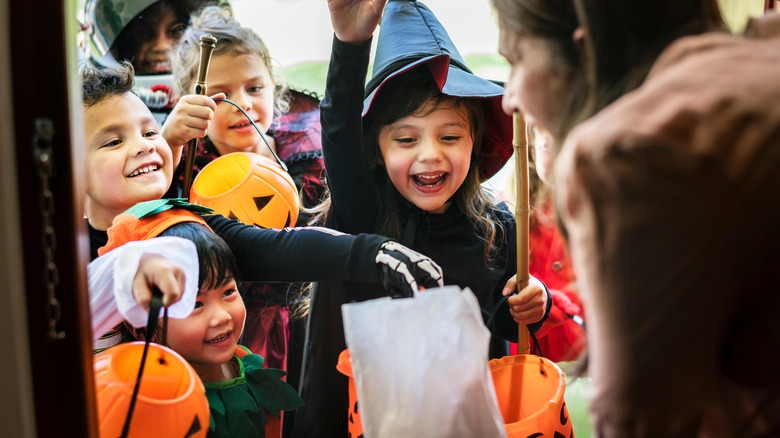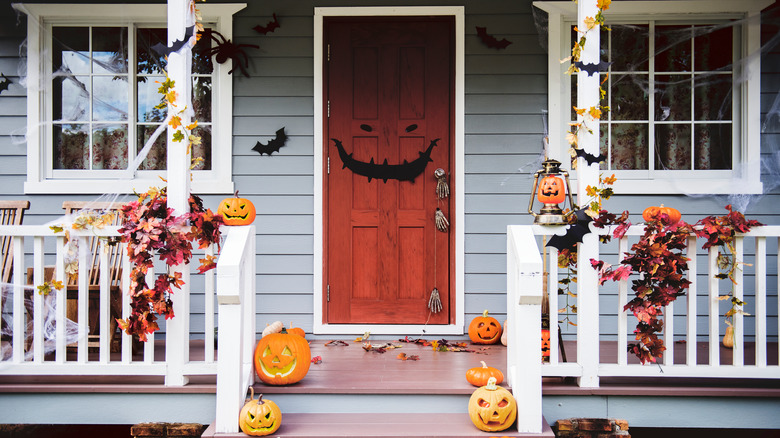Here's Why Trick-Or-Treat Carpooling Is A Terrible Idea
History tells us the seasonal act of trick-or-treating has roots in Celtic pagan rites, the conspiracy of Guy Fawkes in 1600s England, and American immigration. While the story of trick-or-treating is indeed a long and fascinating one, the thing that most kids past, present, and future care about is how much of their favorite Halloween candy they can get from their neighbors while doing it.
Classic children's stories and Halloween specials of yesteryear feature kids in full costumes walking through their neighborhood unattended, going from house to house to collect candy. Ever in the spirit of changing traditions, however, the act of kids roaming free through their suburbs is no longer seen as safe or even commonly practiced as much as it used to be. As The Atlantic explains, the tradition of trick-or-treating is caught in a flux, where some believe that the practice is "dying out" while others claim that trick-or-treating is still practiced, but not in the style of "the good old days."
While kids may have been allowed to roam free in the suburbs years ago, parents and other community figures encourage "safer" alternatives to letting your kids run wild in the streets every October 31. Some communities practice "trunk-or-treat" in parking lots (via Good Housekeeping), while some families may gather their kids together and drive them around town in what is known as "trick-or-treat carpooling."
But is trick-or-treat carpooling more just an annoying hassle than it is an easy and safe way for families to enjoy the Halloween season?
Does trick-or-treat carpooling go against etiquette?
Much like any well-established ritual or community event, trick-or-treating has its own set of standards and etiquette people follow. Or, at least, Maralee McKee of The Etiquette School of America tells us there is. Outside of not committing various harmless but annoying pranks like toilet-papering your neighbor's house, McKee has clear guidelines for both parents and children on how to behave and act during trick-or-treating. One piece of advice she gives is to avoid trick-or-treat carpooling unless it follows certain criteria.
"Don't carpool your children to another neighborhood unless a friend or relative lives there," McKee says. "People buy candy based on the amount used last year. A few minivans of unexpected children can cause the host to run out of candy in no time."
In short, a flood of Priuses and minivans pulling up to your neighborhood and draining all of your candy doesn't bode well for those who actually live there. Think of it like going to a dinner party that you weren't invited to, piling all the appetizers onto your plate, and then ghosting the place. It's best to keep your carpool options to places you know and are welcome, instead of going into unfamiliar neighborhoods.
McKee isn't the only one giving out advice on Halloween etiquette. CNN followed suit to remind people of proper Halloween behavior, explaining that it's always best to have common sense whenever you and your family are out stocking up on free candy.

